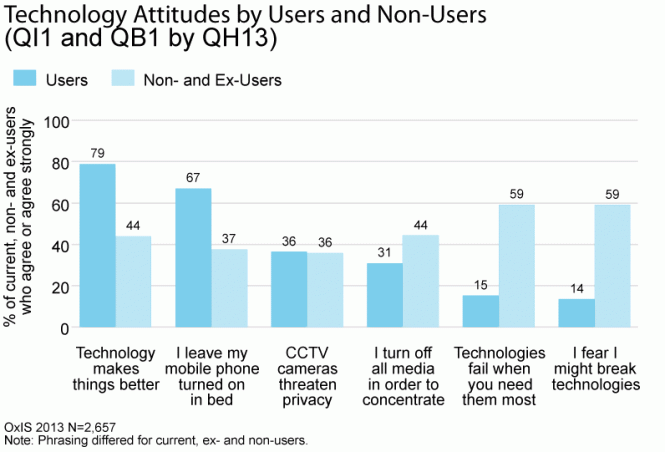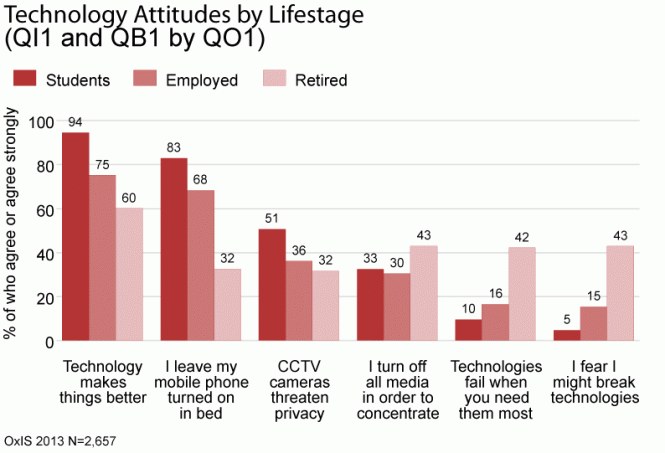3 Sep 2013
Internet users remain disproportionately likely to be young, well educated, and wealthy. Consistent with these patterns, attitudes toward technology are positive among students, the employed, and Internet users generally. Non-users and the retired have more negative attitudes toward technology. One of the barriers to bringing non-users online is the fact that over half of them express fears about the Internet or technology.
When we look at lifestage, we can see relatively large differences in technology attitudes between students, employed people, and retirees on a number of dimensions. For instance, students are very likely (94% in 2013) to agree that technology makes things better, compared to 75% of employed respondents, and 60% of retirees. Students are also more likely to leave their mobile turned on in bed (83%, compared to 68% of employed respondents and only 32% of retirees). Students are somewhat more likely to agree that CCTV cameras threaten privacy (51%) than their working (36%) or retired (32%) counterparts. Retirees are the most likely to fear breaking new technologies (43%, compared to 15% of employed respondents and only 5% of students), and to feel that technology fails when it is needed (42%, compared to 16% of employed respondents and 10% of students).
Non-users have a less positive attitude toward technology than users. Non-users are much more likely to fear that they might break new technologies (59%, compared to 14% of Internet users in 2013) and to feel that technology fails when it is most needed (59%, compared to 15% of users). Non-users are also correspondingly less likely to think that technology makes things better (44%, compared to 79% of users), and to always be connected by doing things like leaving their mobile phone turned on while in bed (37% of non-users, compared to 67% of users).

Internet users tend to have much more positive Internet attitudes than non-users.
